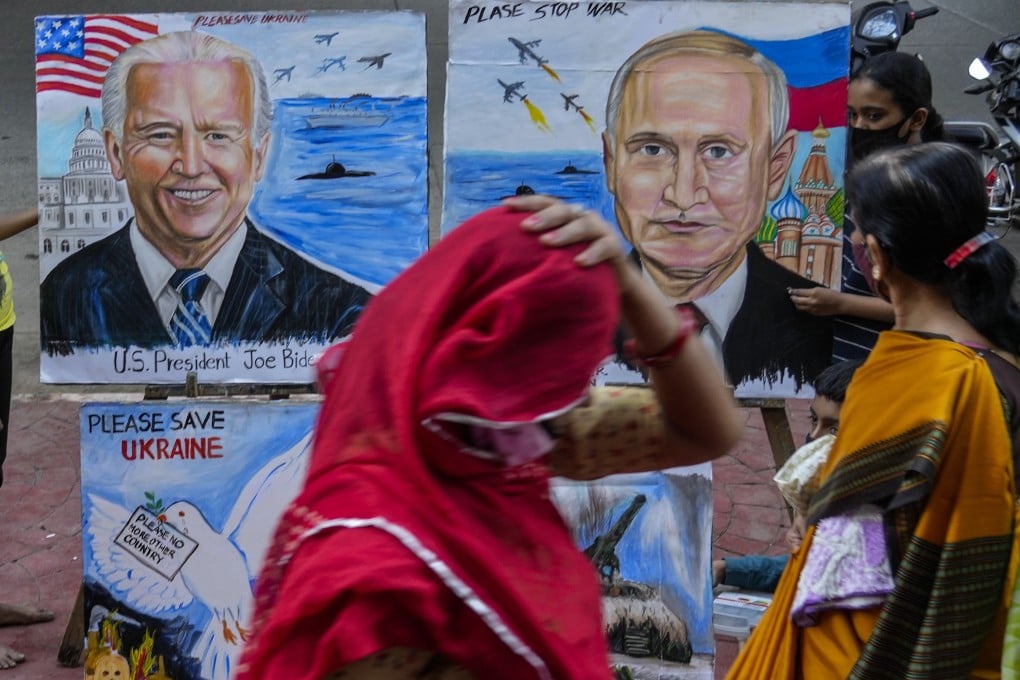Opinion | India’s neutral stance on Russia’s invasion of Ukraine bolstered by mixed feelings towards the West
- Mistrust of Washington is a remnant of the Cold War era and Western coercion only rubs Indians the wrong way
- The threat of sanctions against a developing country ravaged by the pandemic comes across as insensitive

During his trip to New Delhi, US deputy national security adviser Daleep Singh warned of “consequences” for countries circumventing Western sanctions. The entire readout of Singh’s comments was more nuanced, but headlines in India’s sensationalist media emphasised the US warnings. Signals from British foreign minister Liz Truss and German national security adviser Jens Plotner have also been mixed.
While consultations continue at the government level, the damage to broader Indian public opinion seems to be done.
While many oppose the war, a large chunk of Indians favour Russia over the United States and the broader West. Through sections of India’s right as well as left-leaning Twitterati plus India’s pro-BJP media, strong strains of anti-Western pro-Russian sentiment can be observed, with #IStandWithPutin hashtags trending.

